Towards the 14th National Congress of the Party, many comments on draft documents have focused on analyzing core issues of the new development stage, emphasizing the role of science , technology, innovation and sustainable resource management.
These are strategic pillars to ensure Vietnam's rapid and sustainable development, realizing the goal of becoming a developed, high-income country by 2045.
Proposal to develop a framework law on water
Professor, Dr. Dao Xuan Hoc, Chairman of the Vietnam Irrigation Association, said that the draft documents of the 14th Congress demonstrated very high political determination and strong innovative thinking.
However, to successfully implement sustainable development goals, there needs to be a breakthrough in resource management, especially water resources, a field considered the foundation for ensuring ecological security and long-term development of the country.
Assessing the "fragmentation" in resource management, especially water resources, which has lasted for many years and become a major bottleneck in the comprehensive management of river basins, natural disaster prevention and control, urban and agricultural development, Professor, Dr. Dao Xuan Hoc said that the division of responsibilities among many ministries and sectors makes policies unsynchronized and limited in effectiveness. He proposed unifying a focal point for water resources management to ensure consistency and effectiveness in operation, supervision and overall planning.
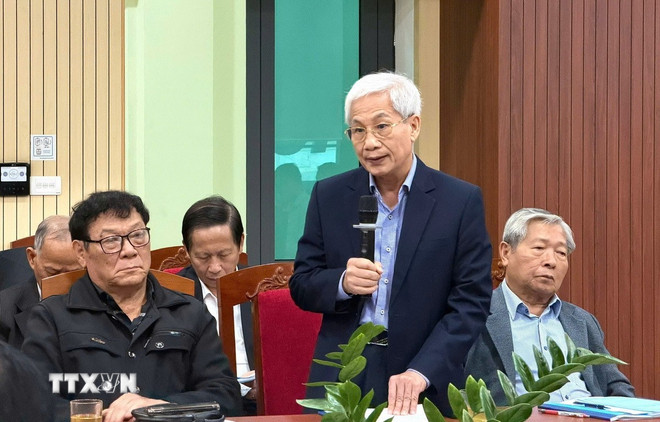
From international experience, Professor, Dr. Dao Xuan Hoc proposed to build a framework law on water and related specialized laws, following the model of four framework laws, including: Law on Water Resources, Law on Management and Exploitation of Irrigation Works, Law on Water Supply and Drainage, Law on Prevention and Mitigation of Natural Disasters.
This model will help clearly define management responsibilities in each field, ensure consistency, and allow for reasonable decentralization and delegation of power between the central and local levels.
In addition, Professor, Dr. Dao Xuan Hoc proposed adding two key projects to adapt to climate change to the list of National Programs for the period 2026-2030: Project on sustainable flood prevention and control in large cities, focusing on building integrated drainage planning, applying smart technology in urban flood management; Project on building and managing flood escape corridors of large rivers, to ensure safety for people living on river banks and increase the flood escape capacity of large river systems such as the Red River, Thai Binh and Mekong River.
To successfully implement these projects, Professor, Dr. Dao Xuan Hoc said that it is necessary to perfect the planning system, shift from "rigid detailed planning" thinking to flexible "framework planning", and encourage the application of big data technology and artificial intelligence in forecasting, warning and decision making.
Water resources management and climate change response are not just technical issues, but also institutional, human and national governance issues.
"Sustainable development requires the unity between economic development and environmental protection, between resource exploitation and regeneration. When science, technology and innovation are promoted in resource management, Vietnam will be more proactive in responding to natural disasters, minimizing risks, protecting the living environment and ensuring water security for future generations," Professor, Dr. Dao Xuan Hoc emphasized.
Key pillars of the knowledge economy
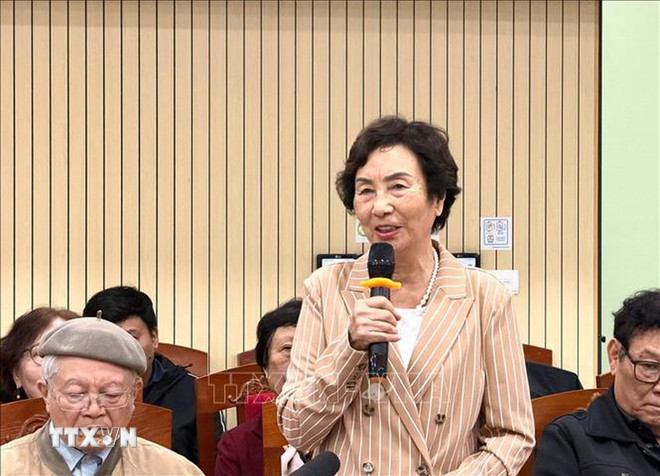
According to Associate Professor, Dr. Bui Thi An, Director of the Institute of Natural Resources, Environment and Community Development (Vietnam Union of Science and Technology Associations), the draft documents have demonstrated strategic vision but need to further emphasize the role of science, technology and innovation as key pillars of the knowledge economy.
Associate Professor, Dr. Bui Thi An said that science and technology must be considered the foundation and main driving force for growth, not just a supporting tool.
The document needs to more clearly define breakthroughs in institutions, resources and creative environment, towards building a national innovation ecosystem, in which enterprises are the center, the state creates a favorable institutional framework and research institutes and universities are the supporting force.
From research practice and scientific activities, Associate Professor, Dr. Bui Thi An proposed 5 major groups of solutions: Creating an open policy environment so that science, technology and innovation can truly become the main driving force of development.
The draft document needs to develop high-quality human resources in science and technology, linked to key industries, especially green technology, biotechnology and digital transformation. Young human resources, especially female intellectuals, need to be given equal opportunities to promote their creativity and contribute to sustainable development.
Along with that, strengthen the connection and promote the role of intellectuals in the country and Vietnamese people abroad; need to soon establish the National Intellectual Advisory Council and the Global Network of Vietnamese Experts, gathering people with passion, knowledge and prestige, to directly participate in policy making, social criticism and propose strategic solutions.
The document should create a mechanism for intellectuals to independently and frankly criticize and contribute opinions, considering social criticism by intellectuals as a driving force for innovation, not just a formality; it is necessary to maintain regular national forums for Party and State leaders to directly exchange with scientists, experts, and intellectuals at home and abroad on strategic national issues.
The document also needs to emphasize promoting science and technology to serve sustainable development goals, associated with green transformation and digital transformation.
Vietnam needs to prioritize research on energy-saving technologies, biomaterials, renewable energy, smart agriculture and circular economy; at the same time, consider green innovation as an inevitable direction to improve productivity, quality and competitiveness of the economy.
Associate Professor, Dr. Bui Thi An also suggested that the draft documents of the 14th National Party Congress should clearly demonstrate the spirit of innovation and the desire to contribute of Vietnamese intellectuals.
Not only in research but also in policy making, intellectuals must be the pioneering force, contributing to building a knowledge-based, green and sustainable economy, towards the goal of "leaving no one behind" in the country's development process./.
Source: https://www.vietnamplus.vn/the-hien-ro-tinh-than-doi-moi-khat-vong-cong-hien-cua-doi-ngu-tri-thuc-viet-nam-post1076066.vnp


![[Photo] Prime Minister Pham Minh Chinh attends the Patriotic Emulation Congress of the Ministry of Foreign Affairs for the 2025-2030 period](https://vphoto.vietnam.vn/thumb/1200x675/vietnam/resource/IMAGE/2025/11/10/1762762603245_dsc-1428-jpg.webp)



![[Photo] Prime Minister Pham Minh Chinh attends the annual Vietnam Business Forum](https://vphoto.vietnam.vn/thumb/1200x675/vietnam/resource/IMAGE/2025/11/10/1762780307172_dsc-1710-jpg.webp)

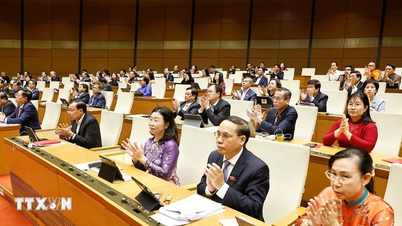



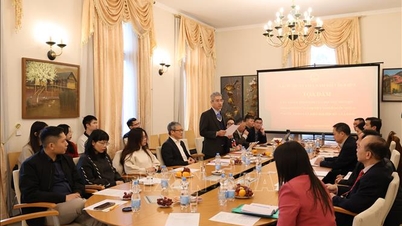

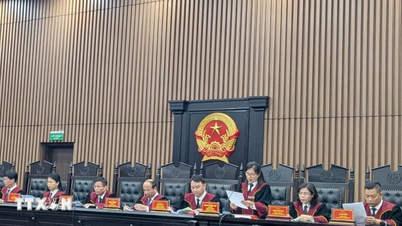
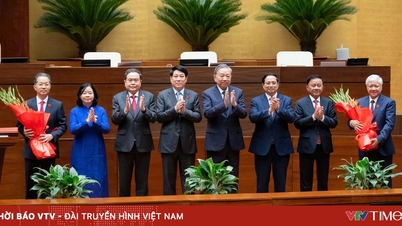

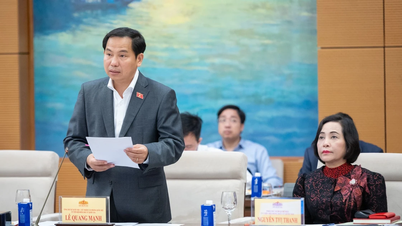

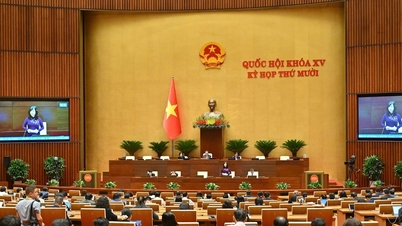


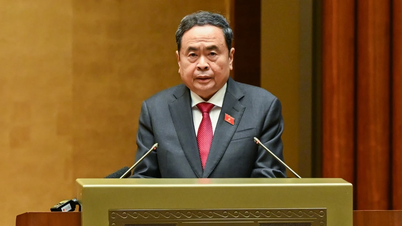







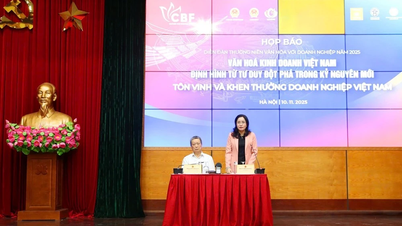

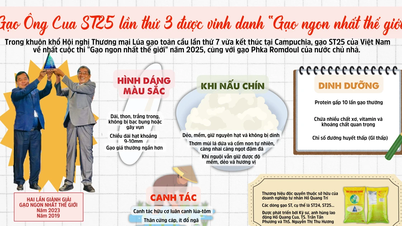







































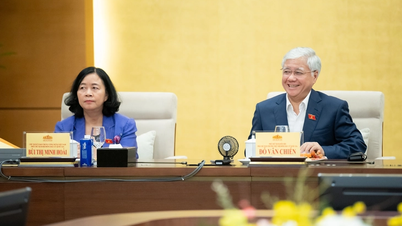






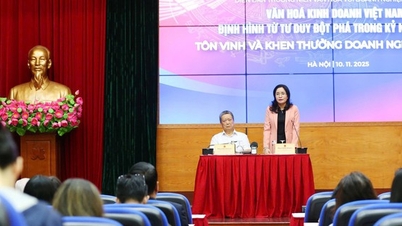





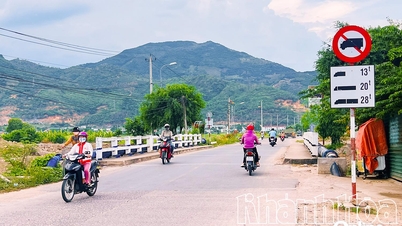




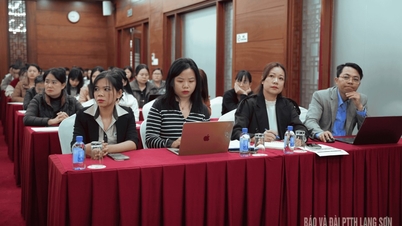


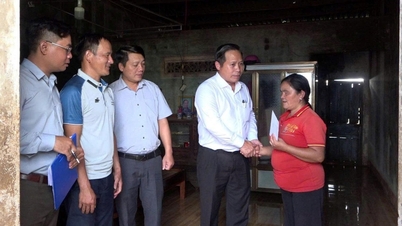

![Dong Nai OCOP transition: [Article 3] Linking tourism with OCOP product consumption](https://vphoto.vietnam.vn/thumb/402x226/vietnam/resource/IMAGE/2025/11/10/1762739199309_1324-2740-7_n-162543_981.jpeg)











Comment (0)